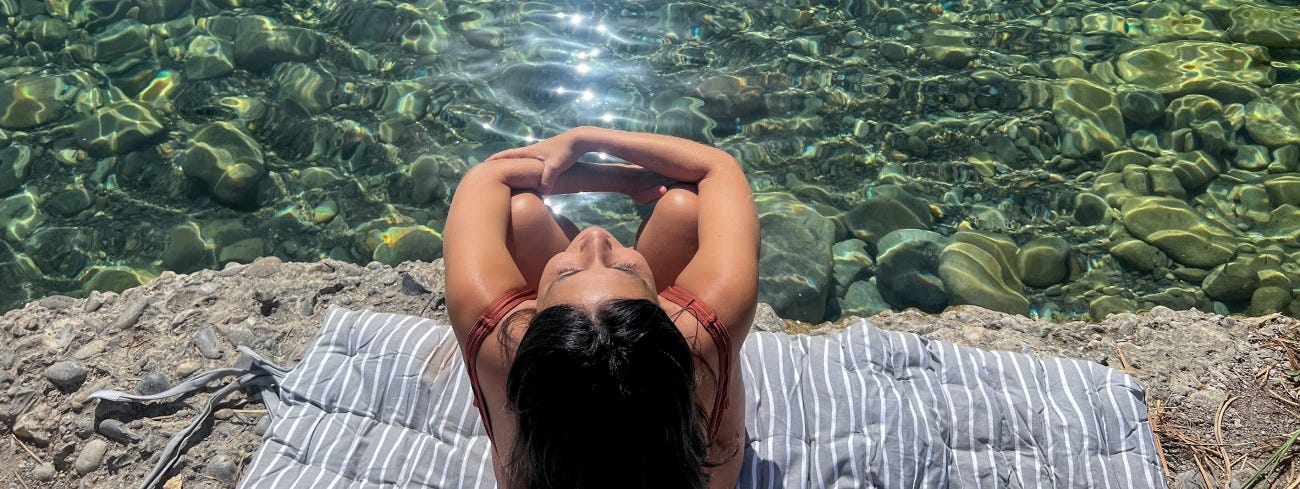
As we age, our bodies produce less collagen, which can result in fine lines and wrinkles, joint pain, slower healing, and brittle hair and nails1. This is because collagen is a main structural protein that helps support these areas of the body. The good news is that collagen supplements have been found to help enhance skin health1.
This guide explores marine collagen, a popular type of collagen supplement. Find out how it works, what it can help with and whether it might be an option for you to consider.
What is marine collagen?
Marine collagen is an abundant protein extracted from marine organisms, typically from fish skin and scales1. It’s often preferred over bovine (beef) and porcine (pork) collagen as it’s metabolically compatible, and there is no risk of animal pathogens1. Collagen from marine sources is also more sustainable, produced from undersized catches or discarded products, even meeting zero-waste strategies3.
What is marine collagen made of?
Marine collagen can be sourced from a number of marine organisms, including fish, jellyfish, sponges and other invertebrates, which all produce significant amounts of collagen1. Fish skin is most commonly used for type 1 extraction1, as type 1 collagen is the most abundant in the body and provides support to most tissue, including muscle and skin2. With recent studies suggesting only low molecular weights can penetrate the skin barrier, the fish collagen is hydrolysed (broken down), into small, bioactive collagen peptides for better absorption2.
What does marine collagen do?
There are many ways marine collagen may be able to support your body. Including:
- Helping to enhance skin hydration
- Promoting skin health
- Helping to increase skin firmness
- Improving skin elasticity
Thanks to collagen peptides having low molecular weight, once broken down, absorption is easier, making it an efficient source of collagen2.
What is marine collagen good for?
The body can use marine collagen in many ways, making it beneficial for several advantages, such as enhancing skin hydration, helping improve skin firmness, supporting skin elasticity, and helping promote skin health2.
Is marine collagen good for you?
Many prefer marine collagen as it has few risks yet many benefits1. It can help promote health, as well as help promote skin hydration2. However, marine collagen contains less amino acids than other types, which means it has a shorter shelf life1. It’s important to note that while beneficial, this collagen may not suit everyone, for instance, those who have fish allergies or different dietary preferences.
Benefits of marine collagen
When it comes to collagen, marine-based supplements offer many benefits2, including:
- Skin hydration and elasticity,
- Skin health support
- Skin firmness
How long does it take for marine collagen to work?
Results from collagen supplements are not instant, and can take weeks or months to produce noticeable benefits, depending on your health and target areas. Discuss your goals with your health professional to ensure realistic expectations and timelines.
What is the difference between marine collagen and collagen?
While marine collagen is a popular source of the protein supplement, there are other types, including bovine, chicken and porcine. Marine collagen is a type 1 collagen, which is the most abundant, helping more areas of the body. Other types, like those derived from cows and pigs, tend to be type 2 or type 3, which play a more specific role in the body1, such as supporting the health of joints or skin.
While all types can be used by the body, marine collagen is one of the most easily absorbed thanks to its small molecular size1. Plus, it’s also suitable for pescatarians or those looking for more sustainable sources of collagen3.
Is marine collagen better?
Whether marine collagen is the best type of collagen supplement for you depends on your needs. If you’re looking to help improve skin health, it may be an option to explore. However, a type 3 collagen, like bovine collagen, might be more suited for joint pain2. It’s best to speak to a health professional to help you decide which suits your personal needs and health goals.
For more information about improving your hair, skin and nail health, check out the Wellness Hub for the latest tips and guidance.
Always read the label and follow the directions for use.
References:
- Geahchan S, Baharlouei P, Rahman A. Marine Collagen: A Promising Biomaterial for Wound Healing, Skin Anti-Aging, and Bone Regeneration. Mar Drugs. 2022;20(1):61. Published 2022 Jan 10. doi:10.3390/md20010061 https://pmc.ncbi.nlm.nih.gov/articles/PMC8780088/
- Rahman A, Rehmani R, Pirvu DG, Huang SM, Puri S, Arcos M. Unlocking the Therapeutic Potential of Marine Collagen: A Scientific Exploration for Delaying Skin Aging. Mar Drugs. 2024;22(4):159. Published 2024 Mar 30. doi:10.3390/md22040159 https://pmc.ncbi.nlm.nih.gov/articles/PMC11050892/
- Coppola D, Oliviero M, Vitale GA, et al. Marine Collagen from Alternative and Sustainable Sources: Extraction, Processing and Applications. Mar Drugs. 2020;18(4):214. Published 2020 Apr 15. doi:10.3390/md18040214 https://pmc.ncbi.nlm.nih.gov/articles/PMC7230273/
